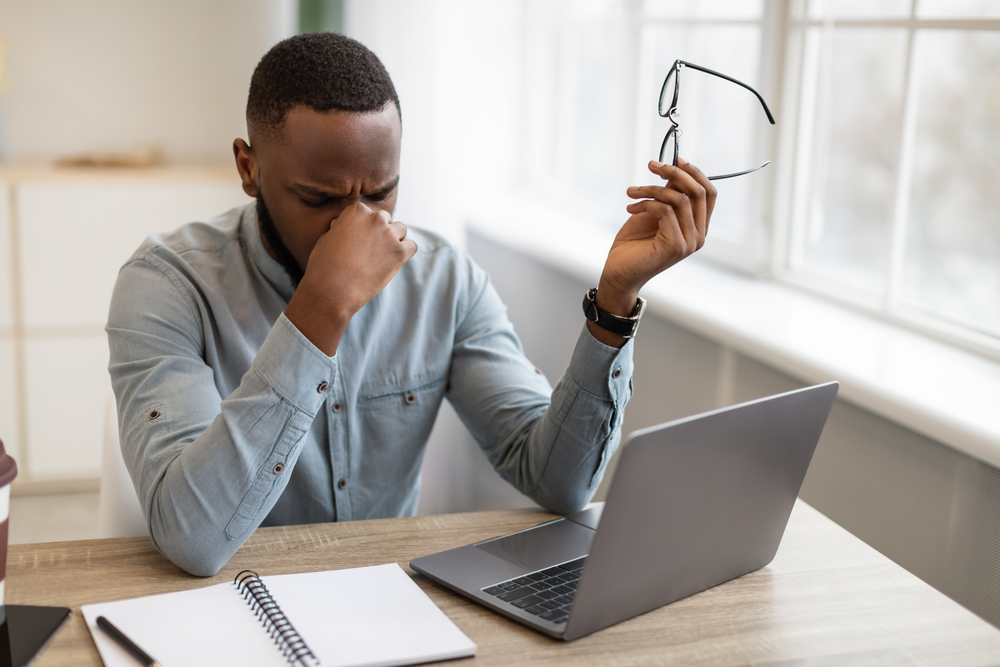Our eyes are windows to the world, allowing us to experience the beauty and wonder around us. Yet, many of us take our vision for granted until it starts to deteriorate. The good news is there are steps you can take to protect your eye health and minimize the risk of vision loss.
While some causes of vision loss are unavoidable due to age or genetics, many others can be prevented through healthy habits and regular eye care. This article dives into practical strategies you can incorporate into your daily routine to keep your eyes healthy and your vision sharp for years to come.
Regular eye exams: The cornerstone of eye health
Scheduling regular eye exams is the single most important step you can take to safeguard your vision. These examinations allow eye doctors (ophthalmologists or optometrists) to detect eye problems early on, often before you experience any noticeable symptoms. Early detection is crucial, as many eye diseases are treatable when caught in their early stages.
The American Academy of Ophthalmology recommends a comprehensive eye exam every two years for adults aged 18 to 60. If you’re over 60, yearly exams are advisable. People with a higher risk of developing eye problems — such as those with diabetes or a family history of eye disease — may need even more frequent examinations.
During an eye exam, your doctor will perform a series of tests to assess your overall eye health. These tests may include:
- Visual acuity test: This measures your ability to see at various distances.
- Refraction test: This determines your prescription for eyeglasses or contact lenses.
- Tonometry: This measures the pressure inside your eye, which can be an indicator of glaucoma.
- Slit-lamp exam: This allows your doctor to examine the structures of your eye in detail.
- Dilated eye exam: This involves dilating your pupils with eye drops to allow for a more thorough examination of the retina and optic nerve.
By attending regular eye exams, you’re allowing your eye doctor to identify potential problems early and intervene before they cause permanent vision loss.
Shielding your eyes from UV rays
Sunlight — while essential for life — emits ultraviolet (UV) rays that can damage your eyes over time. Excessive exposure to UV rays increases your risk of developing cataracts, macular degeneration and other eye problems.
Here are some tips to protect your eyes from UV rays:
- Wear sunglasses that block 99% of UVA and UVB rays. Look for sunglasses that meet the UV protection standards set by organizations like the American Academy of Ophthalmology.
- Choose sunglasses with wraparound frames. These offer better protection from UV rays entering from the sides.
- Wear a wide-brimmed hat when spending extended time outdoors, especially during the peak sun hours of 10 a.m. to 4 p.m.
- Consider UV-protective contact lenses. These can provide additional protection along with sunglasses.
Fueling your eyes with a healthy diet
Just like the rest of your body, your eyes thrive on a healthy diet rich in essential nutrients. Certain vitamins and minerals play a crucial role in maintaining good vision and protecting your eyes from age-related macular degeneration (AMD) and cataracts.
- Load up on fruits and vegetables, especially leafy greens. These are rich in antioxidants like lutein and zeaxanthin, which may help protect your eyes from macular degeneration.
- Incorporate oily fish like salmon, tuna and sardines into your diet. They are a great source of omega-3 fatty acids, which can contribute to eye health.
- Don’t forget the importance of vitamins C and E. These antioxidants help fight cell damage and may reduce the risk of AMD.
- Zinc is another essential nutrient for eye health. It plays a role in night vision and helps protect the retina from light damage.
By incorporating a balanced diet rich in these essential nutrients, you’re providing your body with the building blocks it needs to maintain healthy vision.
Taking charge of your eye health
Vision is a precious gift that allows us to experience the world around us. By incorporating the tips outlined above into your daily routine, you can take charge of your eye health and minimize the risk of vision loss. Remember, early detection is key. Schedule regular eye exams with your doctor, prioritize a healthy lifestyle and protect your eyes from UV rays and injury. With proactive measures, you can safeguard your sight and enjoy clear vision for years to come.
This story was created using AI technology.














